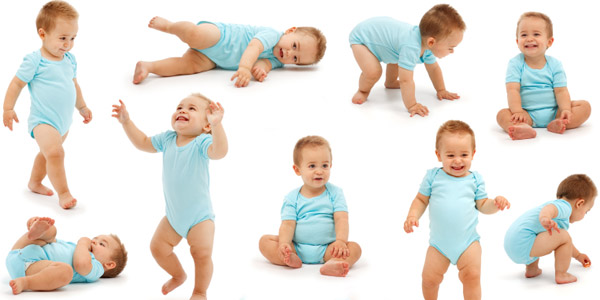 Source: bing.com
Source: bing.comAs a new parent, you may be wondering what your baby is capable of learning and when they will reach certain developmental milestones. Understanding the different stages of baby learning development can help you provide the necessary support and stimulation to help your little one thrive. In this guide, we will explore the different stages of baby learning development and what you can expect from your baby at each stage.
Table of Contents
Stage 1: Sensory Exploration (0-4 months)
During the first few months of life, your baby’s senses are rapidly developing. They are exploring the world around them through touch, taste, smell, sight, and sound. At this stage, your baby will begin to recognize familiar faces, voices, and smells, and may start to respond to simple commands like “no” or “come here.” They are also developing their motor skills, such as grasping and holding objects.
Stage 2: Learning Through Play (4-8 months)
Around 4 months, your baby will start to engage in more purposeful play. They may start to reach for toys, roll over, and even sit up with support. At this stage, your baby will also start to babble and make sounds, which is an important part of language development. They will enjoy simple games like peek-a-boo and may even imitate your actions, such as clapping or waving.
Stage 3: Exploring Their Environment (8-12 months)
As your baby becomes more mobile, they will begin to explore their environment in new ways. They may crawl, pull themselves up to stand, and even take their first steps. At this stage, your baby will begin to understand cause and effect, such as realizing that pushing a button makes a toy light up or play music. They will also begin to develop their problem-solving skills, such as figuring out how to fit a shape into a matching hole.
Stage 4: Developing Independence (12-18 months)
Around their first birthday, your baby will start to assert their independence. They may refuse to eat certain foods, insist on doing things themselves, and develop strong preferences for toys or activities. At this stage, your baby will also begin to develop their social skills, such as waving goodbye, blowing kisses, and even saying a few simple words. They may also start to understand simple directions, such as “come here” or “give me a hug.”
Stage 5: Building on Skills (18-24 months)
As your baby approaches their second birthday, they will continue to build on the skills they have developed so far. They may start to string together simple sentences and ask for things by name. They will also become more skilled at using utensils to eat and may even start to brush their own teeth. At this stage, your baby will also start to develop their sense of empathy and may show concern for other people’s feelings.
It’s important to remember that all babies develop at their own pace, and there is a wide range of what is considered “normal” development. If you have concerns about your child’s development, talk to your pediatrician. They can offer guidance on what to expect and recommend early intervention services if needed.
Frequently Asked Questions About Baby Learning Development Stages
Q: Can I do anything to help my baby’s development?
Yes! You can provide a stimulating environment with safe toys and plenty of opportunities for play and exploration. You can also read to your baby, sing songs, and talk to them to promote language development. Finally, be sure to give your baby plenty of love and attention, as emotional support is just as important as physical stimulation.
Q: Should I be concerned if my baby isn’t reaching certain milestones?
It’s important to remember that all babies develop at their own pace, and there is a wide range of what is considered “normal” development. However, if you have concerns about your child’s progress, talk to your pediatrician. They can offer guidance on what to expect and recommend early intervention services if needed.
Q: How can I tell if my baby is developing normally?
Your pediatrician will monitor your baby’s development at each checkup and can offer guidance on what to expect. You can also look for certain signs of normal development, such as reaching for toys, babbling or making sounds, and making eye contact. If you have concerns about your child’s progress, talk to your pediatrician.
Q: What if my child has a developmental delay?
If your child has a developmental delay, early intervention services can be highly effective in helping them catch up. These services may include physical or speech therapy, special education services, or other forms of support. Talk to your pediatrician or a specialist to learn more.
Q: Can I still bond with my baby if they have a developmental delay?
Yes! Bonding with your baby is one of the most important things you can do, regardless of their developmental level. You can still read to your baby, talk to them, and engage in play and exploration. Be sure to talk to your pediatrician or a specialist to learn more about how to support your child’s development.
